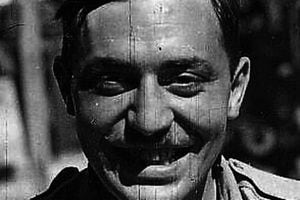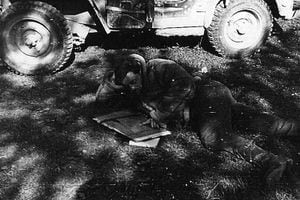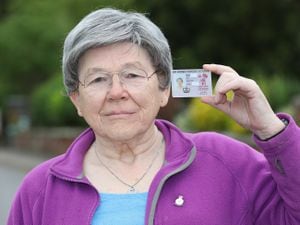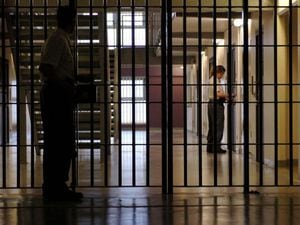War hero 'Bulldozer' loses his final battle at Shropshire home
A special forces soldier who led cloak and dagger raids and was awarded the Military Cross twice has lost his final battle, dying in a care home in Ludlow at the age of 93.

Major John Davies Campbell had fought with Popski's Private Army in daring and dangerous missions in Italy, and acquired the nickname "Bulldozer" after driving over exploding anti-personnel mines in his Jeep.
He was chairman of the Friends of Popski's Private Army and his passing means that there are now only two known survivors of the unit.
There will be a service of thanksgiving for him on October 3 at 2pm in Leominster Priory, in a celebration of his long and colourful life.

He was chairman of the Friends of Leominster Priory, raising substantial funds for its maintenance and restoration.
John Campbell was born in Monasterevan, County Kildare, and went to school in London and at Cheltenham College.
Called up in 1940, he joined the Argyll and Sutherland Highlands and had the first of many narrow escapes from death at El Alamein in 1942.
However an incident in which his men disobeyed his orders and bolted reflected badly on him, with the result that he was relegated to mundane rear-echelon duties.
It left him with a desire to prove himself, and in 1944 he joined No 1 Demolition Squadron in Italy, an irregular unit better known as Popski's Private Army.
He was awarded the Military Cross for an operation against a fortified farmhouse, and was awarded a Bar to his MC – a second award of the same medal – for lightning attacks against German positions in the closing stages of the conflict
A strange sort of luck seemed to follow him around. In another of his near-death experiences, which happened on his 23rd birthday shortly after the minefield incident, he drove up to a farmhouse and parked his Jeep on the far side from the enemy, and went inside.
The position must have been under observation by enemy spotters, as a German 88mm shell came in through an upper window, careered down the stairs, burst through a door, and blew up his Jeep.
It was the third time within 24 hours he had come through unscathed from exploding mine and shell.
After the war, when a fishing business he started in his native Ireland foundered when its only boat sank, he emigrated to Kenya and served in the Colonial Service.
In 1957 he was made an MBE, and in the same year he was Mentioned in Despatches for distinguished service as an officer in the Territorial Army there. In 1961 he joined the Diplomatic Service.
Postings around the world followed. The Queen appointed him a CVO (Commander of the Royal Victorian Order), which is a reward for personal service to the sovereign. On retirement he was made CBE.
He made his home in Luston, near Leominster, and built up a business treating potentially dangerous surfaces on roads, airfields and the hardstandings in farmyards to prevent skidding.
His company in Ludlow Road, Leominster, called Rapid Repair, produced an instant repair compound for roads and driveways.
To his sorrow his medals were stolen, and were never found.
For the past 18 months he had been looked after at the Ludlow care home.
According to the Friends of Popski's Private Army website: "He suffered a series of mini-strokes that he always pulled back from, to the surprise and relief of his wife Shirley and their children Lulu, Tara and Piers, having been given the Last Rites three times."
He died peacefully in his sleep in the morning of July 30.





